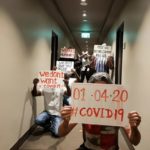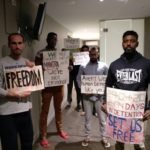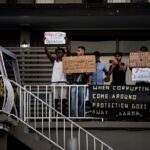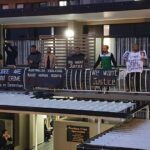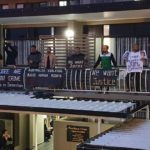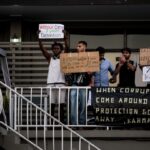COVID-19 Has Infected Medevac Refugees in Long-Term Hotel Detention
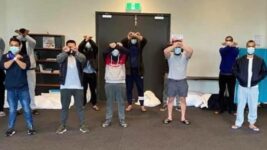
After 18 months of warnings, the inevitable has happened. A number of refugees who’ve been detained long-term by the Australian government have tested positive to COVID-19.
These men are amongst the 50-odd majority Medevac refugees currently locked up in Carlton’s Park Hotel in Melbourne.
According to the Refugee Action Coalition (RAC), six Medevac refugees in the hotel have been placed in quarantine isolation after testing was carried out. This followed the Australian Border Force having confirmed three detainees were COVID positive on the evening of 17 October.
Despite the first detainees with discernible symptoms having been tested last Thursday, the rest of the hotel population weren’t assessed as to their virus status until Sunday evening. And the detainees were told they’d have to wait 48 hours for results.
All of these men are now confined to their rooms, after being able to freely move about during the intervening days between the first tests and the positive results being announced.
Three COVID positive detainees were taken to the hospital on Sunday and have since been returned to the hotel, which is classed as an alternative place of detention (APOD).
RAC reports that “due to negligence in the handling of the outbreak”, proper contact tracing has not been performed, which leaves the source of the virus unknown, although it’s understood it came from outside the hotel.
And refugee advocates have outlined that Serco – the company in charge of administering the detainees – was reluctant to allow an initial ambulance to attend.
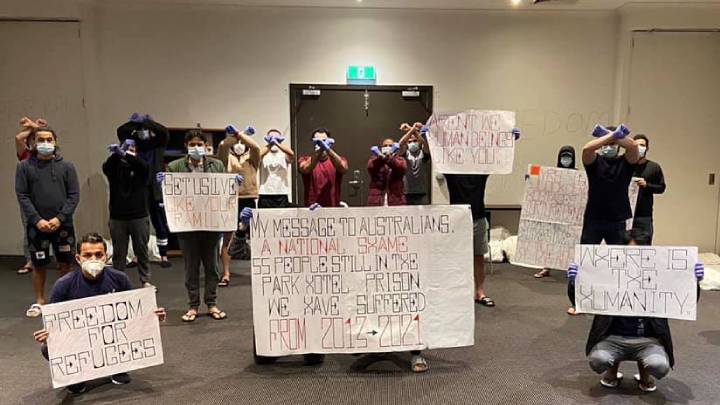
Akin to punishment
“People had symptoms, but they weren’t COVID tested,” explained human rights lawyer Noeline Harendran, who has clients detained inside the Park Hotel. “Finally, we had a client actually faint in a bathroom, and an advocate called an ambulance, but it was turned away by Serco.”
Harendran told Sydney Criminal Lawyers that the man who collapsed couldn’t breathe, yet the employees of the notorious British company initially wouldn’t let him go to the hospital or be COVID tested.
This wasn’t until her colleague, migration lawyer Daniel Taylor, wrote to the relevant authorities demanding something be done.
“They wrote back today and asked us to tell advocates not to call ambulances,” explained Harendran. “So, when there is an emergency like that, they don’t won’t the advocates to call an ambulance. Technically, they want nobody to do anything.”
The refugees in the Park have compromised health. They were flown to Australia under now revoked Medevac laws to undergo medical treatment. And Harendran points out that their continued detention during the pandemic is an unwarranted act of punishment.
“Wilful endangerment”
Refugee advocates and lawyers have been warning of the extreme risk posed by detaining asylum seekers with medical needs in hotel environments during the pandemic, as it doesn’t permit the taking of protective measures, which leaves those confined at a heightened risk.
Taylor told SCL that under the provisions of the 1951 Refugee Convention, the government has no basis for having detained these men in the first place.
Indeed, the convention provides their having come to Australia seeking asylum as a completely legal option when fleeing persecution.
“It’s not in accordance with the convention to hold them for nine years in detention, nonetheless that is what Australia has done,” the lawyer continued.
“And as in any prison environment, there are special responsibilities that go to those who hold persons in custody, which include providing a safe environment and access to appropriate medical care.”
As Taylor tells it, between the initial testing of the refugees and advising of those COVID positive, there was a gap where the government was not immediately forthcoming with the results, and this exposed all those in the APOD to a serious COVID risk, which constitutes “wilful endangerment”.


